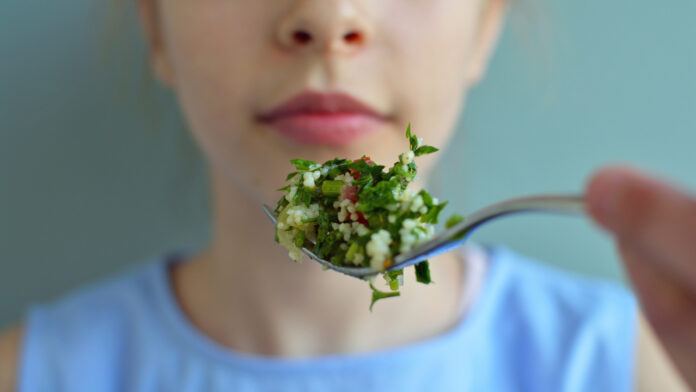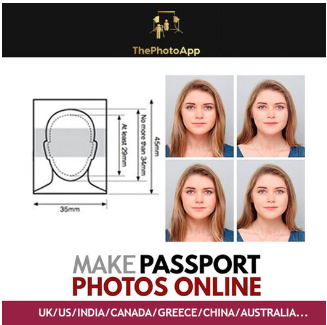I’d waged a battle with my physique for a lot of my life, tying my self-worth to the quantity on a scale. How may I move that baton of guilt, disgrace and weight-reduction plan tradition on to my kids?
My kids inherited sure issues from me: my fast wit, my hazel eyes and likewise my physique kind.
I was a chubby youngster. The adults in my life instructed me it was “puppy fat” and that I’d outgrow it. When I didn’t, I was despatched to a weight-loss group for fats kids in grade 4. I keep in mind nothing about it other than the humiliation of seeing one other boy from my class there.
I put on extra weight as I grew into a teenager. My mum, who struggled along with her personal weight, selected Christmas Eve to pressure me on my grandmother’s scales. I was instructed I shouldn’t weigh that a lot.
I grew up on a fairly regular weight-reduction plan of fish fingers, baked beans, and chips. It was the extent of my British-born father’s culinary abilities. With my kids, I needed it to be totally different. I made baby meals from scratch. I turned my nostril up at KD and fed them quinoa earlier than most of us knew how you can pronounce it accurately.
As my two kids grew up, they put on weight. I nervous about them getting fats. I nervous about them getting teased as I did, adults commenting on their weight as if it was a character flaw—that being fats meant you have been lazy, a slob. That they’d be instructed nobody would love them in the event that they have been obese.
But there was a a part of me that additionally felt ashamed of getting kids who have been obese. I thought others would decide their weight as a reflection of my parenting. This worry wasn’t unfounded. At the time, a good friend within the UK who labored as a social employee talked about overweight kids were being put into foster care. The message? Allowing your kids to get fats was a type of youngster abuse.
As their weight climbed, I acquired a referral via their household physician to attend a weight-management clinic coated below our provincial insurance coverage plan after they have been in grade faculty. I accompanied my kids as soon as a month to a clinic the place they might be weighed, measured and grilled about their each day meals consumption. My kids can be requested to recount precisely what they ate for breakfast, lunch, and dinner. Did they’ve snacks? If so, what? How about train? Each meal was picked over and I felt judged for what usually ate. “Couldn’t they have more protein at breakfast? Swap out the granola bar for a protein bar. You should limit treats to once a week.”
Still, I thought I was doing the proper factor.
Now I assume I was fallacious.
In the 5 years since I took my kids to the clinic, physique neutrality has entered the lexicon. And with it a shift in how we view our our bodies for what they will do, fairly than what they seem like. But I nonetheless struggled to stay judgement-free about my child’s our bodies.
It’s solely within the final yr I’ve reeducated myself on what I thought I knew about well being and weight reduction, resembling the constraints of measuring well being in opposition to the BMI, how physique dimension is greater than “calories in, calories out,” and alarmingly a examine that reveals weight-reduction plan in adolescents has been found to predict weight gain.
What’s been more durable to reconcile is my personal internalized fatphobia. I’d waged a battle with my physique for a lot of my life. My self-worth, my lovability tied to the quantity on the scales. Yet, I handed that baton of guilt, disgrace, and preoccupation with weight-reduction plan tradition on to my kids. Their our bodies couldn’t merely be. They needed to be mounted.
It was via studying creator Virginia Sole-Smith, creator of the e-newsletter Burnt Toast, that I first questioned whether or not my youngster’s physique dimension was my fault. (“You feel guilty because we are told that fat kids are failures. They are not. You feel guilty, because we’ve been told that fat kids are proof of poor parenting. They are not,” writes Sole-Smith.) Her writing felt like permission to assume otherwise about my parenting in relation to my youngsters’s weight. It gave me permission to let my kids get pleasure from consolation meals, as a result of meals is meant to be comforting.
I additionally began listening to the podcast Maintenance Phase, which investigates the science behind well being meals traits, fad diets and well-liked dietary recommendation. Their episode on fats camps was sobering for me. One of the hosts, Aubrey Gordon, describes her expertise at a fats camp in center faculty as, “a fucking shame factory.”
I puzzled if that’s how my kids may need felt when I despatched them to the load administration clinic. I didn’t take into account whether or not placing a nine-year-old on a weight-reduction plan may result in creating an consuming dysfunction, or whether or not they’d really feel the form of disgrace Gordon did at fats camp; the disgrace I felt when I was admonished for what I ate, how I seemed as a youngster.
My kids have helped me be taught these classes. It feels, to me, like there’s a sea of change on this technology’s acceptance of all our bodies. My daughter doesn’t hesitate to name me out for “body shaming,” or if I check with a meals as “bad.”
What I’ve come to be taught is that I don’t have a proper to remark on the scale and form of my child’s our bodies. “Some of us are going to be fat,” writes Sole-Smith. “And that has to be okay with the people who love us.”



